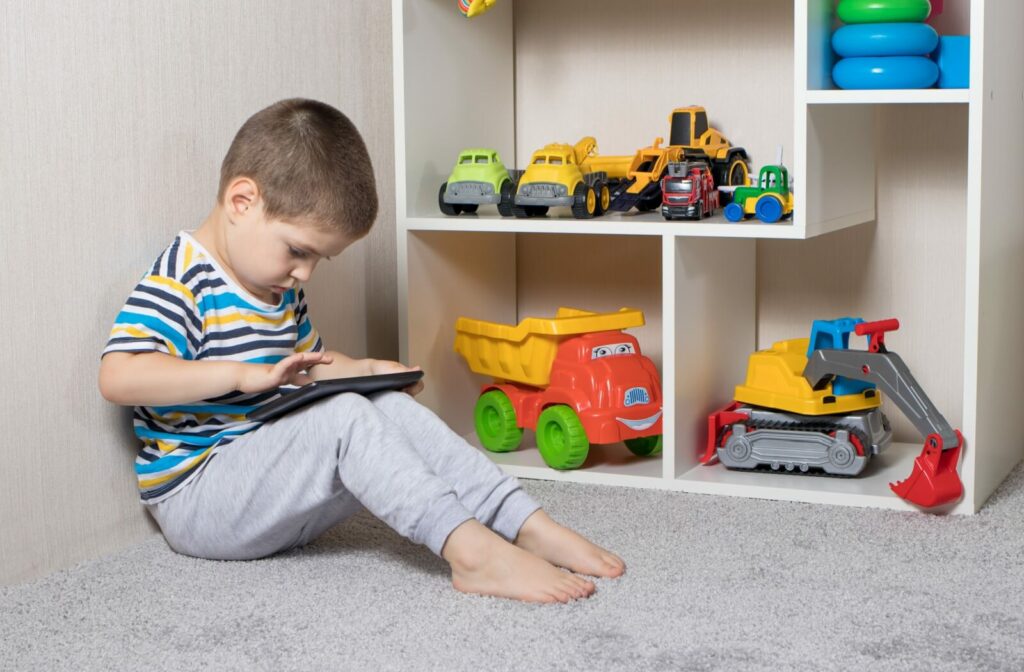What’s Myopia?
Myopia or nearsightedness is a condition in which further away objects seem blurry, while objects seen up close are perfectly clear. This condition affects children and adults alike, and it has a genetic component. While completely curing or reversing myopia isn’t possible, regular visits to the eye doctor and following their recommendations can control myopia and keep you and your child seeing well.
Diagnosing Myopia
Regular eye exams are essential for detecting myopia and keeping it under control. Comprehensive check-ups can determine whether a person has the condition and, by comparison to earlier exams, can assess whether it’s getting worse.
If you or your child have issues seeing distant objects like road signs or the whiteboard at school, it’s recommended that you visit your eye doctor to get a diagnosis and treat or manage your myopia as early as possible.
Because myopia is partly genetic, it’s important to pay closer attention to children with parents who have myopia. Children may not be able to communicate that they’re having trouble seeing, as their own vision is their only point of reference—their vision often feels “normal” from their point of view. With 30% of the population dealing with myopia, it’s never been more important to take a proactive approach to combat the condition.
Causes of Myopia
Genetics play a big factor in how likely a person is to be diagnosed with myopia. If a child’s parents have myopia, there’s a 40% chance that they’ll develop it too.
Myopia usually progresses (gets worse) during childhood, as children’s bodies are still growing.
However, other factors can also contribute to the development of the condition. Everyday activities such as extensive reading or spending a significant amount of time in front of a computer increase the risk of a child developing myopia.

Living with Myopia
Myopia affects people’s lifestyles differently. While some might not feel like the condition is all that bad, others have a harder time adjusting. Luckily, there are many options today to help manage the condition.
If you live an active lifestyle, consider wearing contact lenses instead of regular glasses. And while you may not have thought about contact lenses for your child, contacts for children have improved considerably over the years, and are now often a good choice.
For children, low doses of atropine eye drops applied at night before bed have been shown to slow the progression of myopia. This doesn’t reverse the condition, so children will still need to wear their normal daily glasses or contacts, but it may prevent their myopia from getting worse.
For adults, one treatment option is refractive surgery, which alters the shape of the cornea to counteract the effects of myopia. Again, this isn’t a cure, but it lets you see faraway objects without needing glasses or contact lenses.
The Importance of Treating Myopia Early
Myopia is a condition that can worsen if left untreated, especially in children. In fact, the prevalence of myopia is only expected to increase over time. By 2050, myopia is expected to affect 50% of the global population.
For children diagnosed with myopia, an eye doctor will also likely prescribe glasses and/or contact lenses, but they may also recommend treatments to slow the progression of the condition. This will likely include making certain lifestyle changes, like spending less time in front of a screen and spending more time outdoors.
Final Thoughts
Regular eye exams are crucial for diagnosing and managing myopia.
Considerations like genetics, too much screen time, and health conditions like diabetes can all increase the risk of developing the condition. While there’s no cure, glasses, contacts, and lifestyle changes can minimize myopia’s negative effects. Catching and treating myopia early is important for preventing the condition from worsening.If you suspect that you or your child might have myopia, or if you have any other questions relating to eyes or eye health, Total Focus Optometry is here for you and your family. Book your appointment today, and don’t let myopia slow you down.



